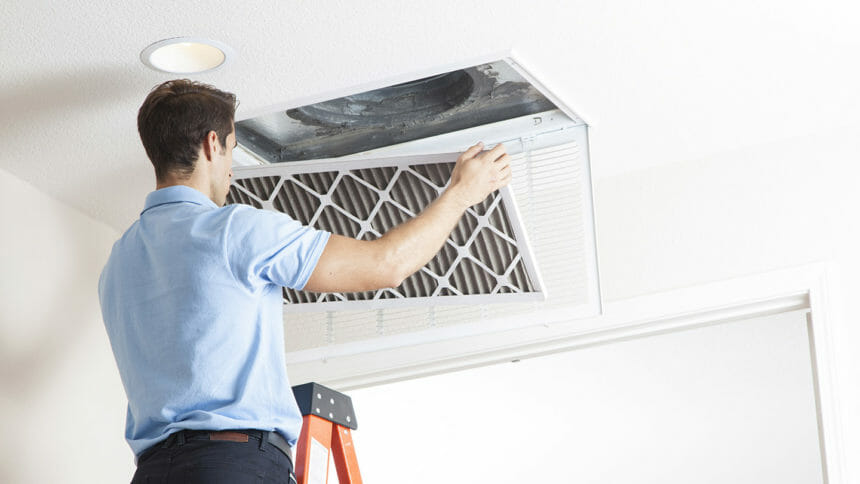
Air filtration systems may be the norm in long-term care facilities post-pandemic, but a new study says they can’t stop people from getting viral infections, according to new research.
A team from the University of East Anglia reviewed multiple studies evaluating technologies like air filter devices, germicidal lights and ionizers.
Paul Hunter, MD, a researcher from UEA’s Norwich Medical School, said large companies and governments looked at installing air-cleaning technology to reduce airborne virus particles in buildings and small spaces during the pandemic. Some facilities considered building-wide technology, and some nursing homes installed technology to try and clean the air. One study found it lowered cases of COVID-19 across several nursing homes.
“But air treatment technologies can be expensive. So it’s reasonable to weigh up the benefits against costs, and to understand the current capabilities of such technologies,” Hunter said in a statement.
The team assessed details from 32 studies on microbial infections or symptoms in people exposed or not to air treatment technologies. The studies were all performed in real-life settings like nursing homes and schools.
Studies on air treatment solutions launched during the COVID-19 pandemic haven’t been published, the team noted.
“In short, we found no strong evidence that air treatment technologies are likely to protect people in real world settings,” Julii Brainard, PhD, a report author also from UEA’s Norwich Medical School.
“There is a lot of existing evidence that environmental and surface contamination can be reduced by several air treatment strategies, especially germicidal lights and high efficiency particulate air filtration (HEPA). But the combined evidence was that these technologies don’t stop or reduce illness.”
There was some “weak evidence” that the air treatment methods lowered the risk for infection. But Brainard said the evidence seemed “biased and imbalanced.”



